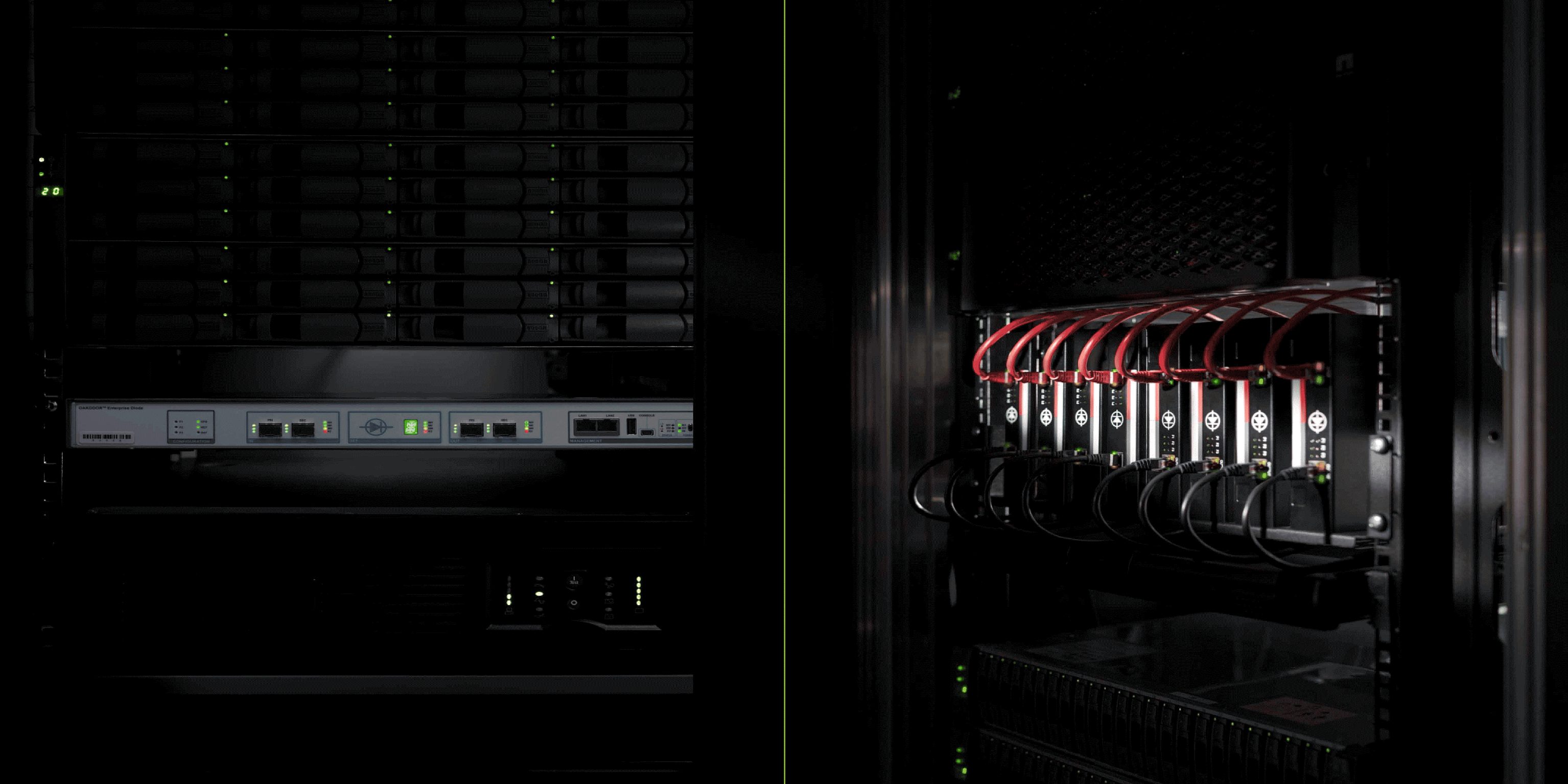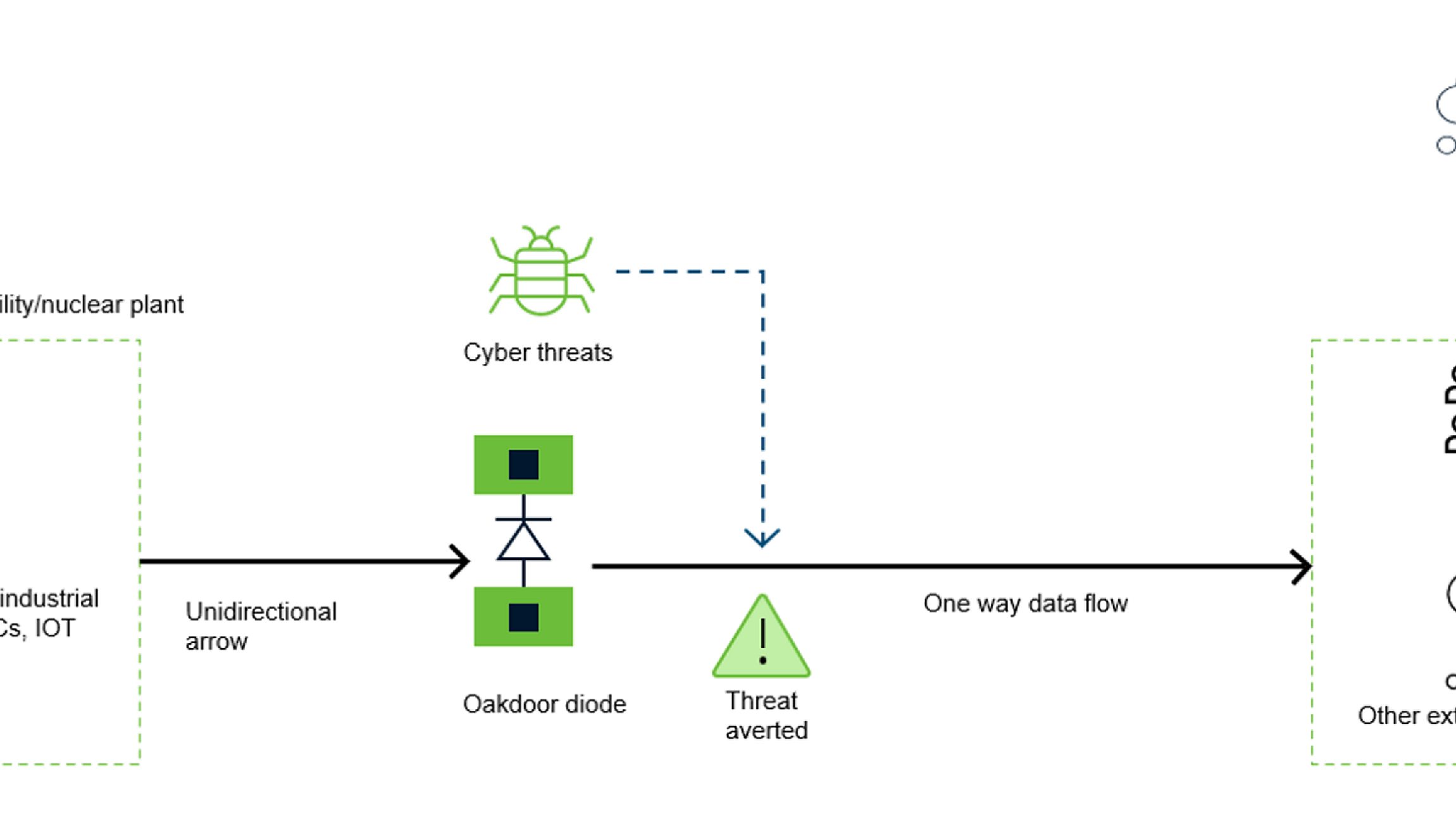
Understanding hardware-enforced security and the role of data diodes
TAGS
SHARE
Hardware-enforced security utilises specialised physical components, such as programmable Field Programmable Gate Array (FPGA) chips, to protect computer systems, networks, and data from various cyber threats. The components ensure the unilateral flow of data and careful content inspection, creating a robust defence against malware infiltration.
While software-based security is effective, it has limitations. Relying on firewalls based on central processing units (CPUs) and software, this solution needs constant updates to combat evolving threats, leading to potential costs and vulnerabilities.
In contrast, Oakdoor data diode hardware restricts the set of instructions that can be performed. And, the diodes require physical access for reprogramming, making remote hacking impossible. This approach assures compromise at a fraction of the cost of a high-assurance software solution.
The strategic role of data diodes in network defence
To segregate networks, the diode is positioned at trust boundaries, such as between internal networks and the Security Operations Centre network. It serves as a vital component in securing cross-domain solutions. These solutions are designed to contain the impact of errors and reduce risk to acceptable levels, ensuring a comprehensive defence against evolving cyber threats.
An example of a cross-domain setup:

How data diodes can solve the biggest cyber security challenges
In today’s interconnected infrastructure, cyber security challenges manifest in various business scenarios. Data diodes emerge as integral components in solutions addressing the risks associated with data transfer across boundaries of differing trust levels.
For example, nearly all entities that have Operational Technology (OT) networks face the challenge of how to operate both Information Technology (IT) and OT networks securely. The OT network may contain legacy systems, posing compatibility challenges with the modern IT network. Getting both networks to operate easily and safely can be tricky. Organisations might opt for a substantial investment in significant software capabilities, leading to a complete overhaul of the OT network for modernisation. However, this approach poses risks, especially if the OT network is outdated, necessitating a comprehensive transformation that can be resource-intensive and disruptive to operations.
A viable alternative is to use hardware-enforced security solutions, such as data diodes, to secure your OT without modifying its existing operation. Implementing data diodes minimises the attack surface and mitigates operational risk while preserving your status quo. This allows organisations to incrementally work towards implementing a longer-term solution without the need for massive modifications all at once. The flexibility to spread out costs over a longer period provides breathing room for strategic decision-making while keeping up with the latest trends in IT/OT security.
Misconceptions around data diodes
A common misconception is that data diodes are an exceptionally expensive way to get functionality that could be obtained with a firewall. While it may be true for diodes that are complex, and therefore have specialised integration requirements, Oakdoor diodes are already compatible with existing network infrastructure and do not require a full ’rip and replace’ approach. The Oakdoor product range was developed to drive down the total cost of data diode ownership while providing the highest level of security.
So there is no need to completely replace a software-based solution. Rather, hardware-enforced security can be a complementary enhancement to an organisation’s existing network security stack. Implementing security-enforcing functions in hardware and software has its corresponding benefits. The best security solutions take advantage of this to optimise their layered network defence.
Get in touch
Whether to request a demo or discuss your cybersecurity requirements, we look forward to hearing from you.